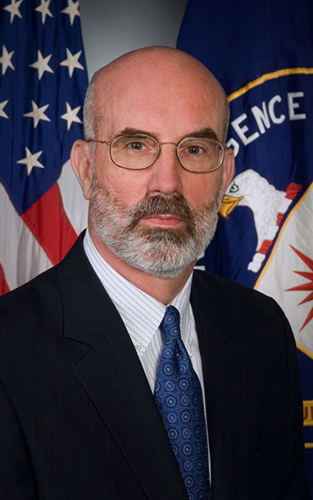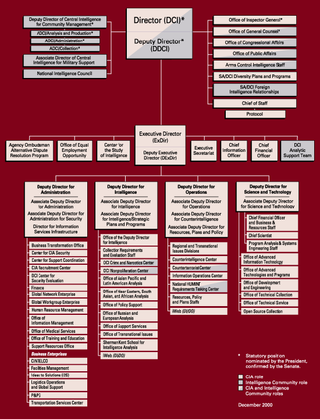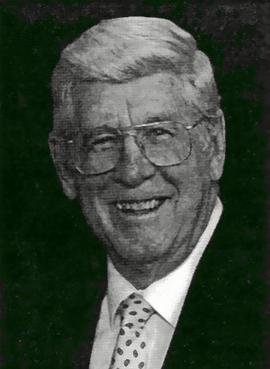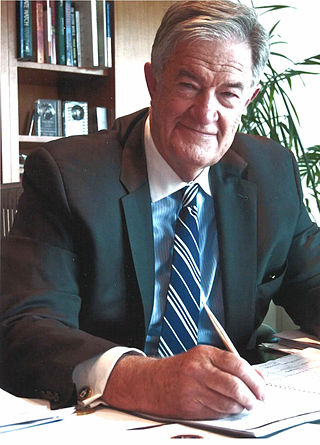Robert G Richer was the associate deputy director of operations of the United States Central Intelligence Agency, the number two in clandestine service, responsible for human intelligence operations overseas. [1] He took early retirement in September 2005, after only 10 months on the job, with reports that he "lacked confidence in the agency's leadership" [2] and had "operational issues."
A former enlisted Marine and officer from 1972 to 1983. He served with the CIA for 35 years including assignment as chief of station (COS) in Muscat, Oman and Amman, Jordan from 1999 to 2001. Richer was the former chief of the Near East and South Asia Division from 2002 to 2004 responsible for clandestine operations throughout the Middle East and South Asia. Richer was awarded the Intelligence Commendation Medal in 1993 and 1996, the Director's Award in 2004 and the Distinguished Career Intelligence Medal. After leaving the CIA, Richer worked for Blackwater USA as vice-president for intelligence. [3]
In 2007, Richer created Total Intelligence Solutions with Cofer Black and Matthew G. Devost, co-founder and president of the Terrorism Research Center, which, according to Richer, "is about delivering evolved intelligence and security solutions to the world's most demanding customers."
Richer is featured in the 2008 bestselling book The Way of the World by journalist Ron Suskind, who alleges Richer was involved in fabricating the Habbush letter, which appeared to show a link between Al Qaeda and the government of Saddam Hussein. Richer publicly denies several of the book's claims. [4]
Richer resides in the Washington, D.C. area with his family.

The Defense Intelligence Agency (DIA) is an intelligence agency and combat support agency of the United States Department of Defense, specializing in defense and military intelligence.

The director of central intelligence (DCI) was the head of the American Central Intelligence Agency from 1946 to 2005, acting as the principal intelligence advisor to the president of the United States and the United States National Security Council, as well as the coordinator of intelligence activities among and between the various US intelligence agencies.
James L. Pavitt was Deputy Director for Operations (DDO) for the CIA from 23 June 1999 until July 12, 2004, when he resigned a day after George Tenet. The CIA said the resignations was for personal reasons.

Stephen R. Kappes was the Deputy Director of the Central Intelligence Agency (DDCIA), until his resignation on April 14, 2010. He had served in the CIA since 1981, with a two-year hiatus. A career clandestine operations professional, Kappes supervised the extraordinary rendition program, a non-judicial system of rendering persons suspected of terrorism to secret locations where most of them were interrogated. Kappes also helped persuade Libyan leader Muammar al-Gaddafi to abandon his nuclear weapons program in 2003. In 2009, Kappes was convicted in absentia by an Italian court for his headquarters-based role in the rendition and torture of an Egyptian citizen who was kidnapped from Italian soil by the CIA.

The Directorate of Operations (DO), less formally called the Clandestine Service, is a component of the US Central Intelligence Agency. It was known as the Directorate of Plans from 1951 to 1973; as the Directorate of Operations from 1973 to 2005; and as the National Clandestine Service (NCS) from 2005 to 2015.
Clair Elroy George was a veteran of the Central Intelligence Agency's (CIA) clandestine service who oversaw all global espionage activities for the agency in the mid-1980s. According to The New York Times, George was "a consummate spymaster who moved the chess pieces in the CIA's clandestine games of intrigue".

Jose A. Rodriguez Jr. is an American former intelligence officer who served as Director of the National Clandestine Service of the Central Intelligence Agency (CIA). He was the final CIA deputy director for operations (DDO) before that position was expanded to D/NCS in December 2004. Rodriguez was a central figure in the 2005 CIA interrogation videotapes destruction, leading to The New York Times Editorial Board and Human Rights Watch to call for his prosecution.

The Central Intelligence Agency, known informally as the Agency and historically as the Company, is a civilian foreign intelligence service of the federal government of the United States, officially tasked with gathering, processing, and analyzing national security information from around the world, primarily through the use of human intelligence (HUMINT) and conducting covert action through its Directorate of Operations. As a principal member of the United States Intelligence Community (IC), the CIA reports to the Director of National Intelligence and is primarily focused on providing intelligence for the President and Cabinet of the United States. Following the dissolution of the Office of Strategic Services (OSS) at the end of World War II, President Harry S. Truman created the Central Intelligence Group under the direction of a Director of Central Intelligence by presidential directive on January 22, 1946, and this group was transformed into the Central Intelligence Agency by implementation of the National Security Act of 1947.
The DCI Exceptional Collector National HUMINT Award is a decoration awarded annually by the U.S. Director of Central Intelligence to recognize individuals and groups for improved Human Intelligence (HUMINT) collection and reporting of information that is of significant value to the U.S. intelligence community.

Jack Gregory Downing was an American field officer for the Central Intelligence Agency (CIA). He served as its Deputy Director for Operations (DDO) from 1997 until July 1999. He was the only person to act as the agency's station head in both Moscow and Beijing.

Bruce O. Riedel is an American expert on U.S. security, South Asia, and counter-terrorism. He is currently a senior fellow in the Saban Center for Middle East Policy at the Brookings Institution, and a professor at Johns Hopkins School of Advanced International Studies. He also serves as a senior adviser at Albright Stonebridge Group.

The Way of the World: A Story of Truth and Hope in an Age of Extremism is a 2008 non-fiction book by Ron Suskind, reporting on various actions and policies of the George W. Bush administration. Most notably, it alleges that the Bush administration ordered the forgery of the Habbush letter to implicate Iraq as having ties to al Qaeda and the hijackers in the September 11 attacks. All these claims have been strenuously denied by the White House and all parties involved. The book, published on August 5, 2008, by Harper, met mixed reviews but received considerable media attention and created controversy.
The Habbush letter, or Habbush memo, is a handwritten message dated July 1, 2001, which appears to show a link between al-Qaeda and Iraq's government. It purports to be a direct communication between the head of Iraqi Intelligence, General Tahir Jalil Habbush al-Tikriti, to Iraqi president Saddam Hussein, outlining mission training which Mohamed Atta, one of the organizers of the September 11 attacks, supposedly received in Iraq. The letter also claims that Hussein accepted a shipment from Niger, an apparent reference to an alleged uranium acquisition attempt that U.S. President George W. Bush cited in his January 2003 State of the Union address.
The Intelligence Medal of Merit is awarded by the Central Intelligence Agency for performance of especially meritorious service or for achievement conspicuously above normal duties.

The CIA publishes organizational charts of its agency. Here are a few examples.

Enno Henry Knoche was an American intelligence officer who served as deputy director of the CIA and acting Director of Central Intelligence.

Jack Devine is a veteran of the Central Intelligence Agency (CIA) and a founding partner and President of The Arkin Group LLC.
Mark E. Kelton is a former senior executive of the Central Intelligence Agency, concluding his career with the position of Deputy Director of the National Clandestine Service for Counterintelligence (DDNCS/CI). He is currently an adjunct assistant professor at Georgetown University, and Director of Threat Insider Solutions at Cipher Systems, LLC.
Gregory W. Vogle is an American intelligence officer who served as the Director of the National Clandestine Service from January 29, 2015 until August 2017. He is a recipient of the Distinguished Intelligence Cross, the nation's highest intelligence award for valor, often described as a Medal of Honor equivalent, for his actions to defend Afghan President Hamid Karzai and his troops against an attack on their position by the Taliban in Tarinkot, Afghanistan.

Henry "Hank" A. Crumpton is a retired Central Intelligence Agency operations officer, in his 24 year career he was appointed deputy director of the Counterterrorism Center and head the CIA's National Resources Division, which focuses on operations in the United States. He played an instrumental role in the early days of the invasion of Afghanistan, leading CTC Special Operations paramilitary forces as some of the first people with boots on the ground in pursuit of the Taliban and al-Qaeda just weeks after 9/11. Gary Schroen's seven man Northern Alliance Liaison Team (NALT) forged alliances and established camp in the mountains, while Crumpton crafted a plan for a larger incursion alongside others like Greg Vogle and Chris Wood. He went on to be appointed by President George W. Bush as Coordinator for Counterterrorism at the Department of State with the rank of Ambassador-at-large on August 2, 2005. He is an author and co-founder, Chairman, and CEO of the business intelligence and political risk firm Crumpton Global LLC.